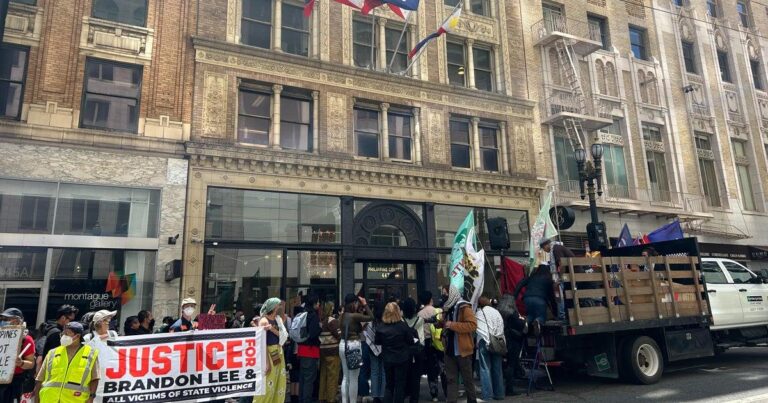San Francisco Rally Amplifies Filipino Diaspora’s Concerns Over President Marcos Jr.’s Governance
Filipino Community in San Francisco Protests Against Marcos Jr.’s Administration
Last weekend, a significant number of protesters assembled peacefully outside the Philippine consulate in San Francisco, voicing their discontent with President Ferdinand “Bongbong” Marcos Jr.‚Äôs leadership and policy directions. Predominantly composed of Filipino expatriates and Filipino-American residents, the crowd carried signs and chanted slogans demanding greater transparency and accountability from the current government. Speakers at the event highlighted pressing issues such as ongoing human rights violations, economic instability, and the perceived weakening of democratic institutions under Marcos Jr.‚Äôs rule.
To raise public awareness, organizers distributed educational materials and conducted a symbolic voting exercise to stress the importance of electoral integrity. Their primary demands included:
- Overhauling governance frameworks to promote justice and inclusive economic development
- Safeguarding press freedom and ensuring media independence in the Philippines
- Launching thorough investigations into corruption allegations involving government officials
- Providing support and protection for marginalized groups adversely affected by recent policies
| Concern | Protesters’ Slogan |
|---|---|
| Human Rights Violations | “Justice for all victims, no more silence!” |
| Government Corruption | “Demand transparency, end the cover-ups.” |
| Freedom of the Press | “A free press sustains a free nation.” |
| Economic Policies | “Real growth for everyone, not empty promises.” |
Addressing Historical Wrongs and Demanding Justice
The protest also served as a poignant reminder of the unresolved historical grievances tied to the Marcos family’s legacy. Many participants recalled the dark era of martial law, during which countless Filipinos endured human rights abuses, enforced disappearances, and widespread economic exploitation. Demonstrators carried placards urging the government to formally recognize these past atrocities and to take meaningful steps toward restorative justice.
Among the key appeals were:
- Comprehensive investigations into human rights abuses committed during martial law
- Full disclosure and recovery of wealth allegedly amassed through corrupt means by the Marcos family
- Official apologies to victims and their families
- Implementation of educational initiatives to combat historical distortion and misinformation
| Issue | Effect on Society | Proposed Remedy |
|---|---|---|
| Martial Law Abuses | Silenced survivors and fractured families | Reinstatement of a truth and reconciliation commission |
| Corruption Legacy | Widening economic inequality | Asset recovery and transparent reporting |
| Historical Revisionism | Misled younger generations | Curriculum reforms and public awareness campaigns |
Community Advocates Call for Global Solidarity and Heightened Awareness
Leaders within the Filipino diaspora have taken a prominent role in mobilizing support and drawing international attention to the political challenges facing the Philippines. At the San Francisco demonstration, representatives from various advocacy organizations stressed the critical need to spotlight President Marcos Jr.’s policies, which they argue undermine democratic values and threaten human rights protections. Their appeals for justice and transparency resonated strongly with attendees.
Advocates emphasized the importance of international collaboration to strengthen grassroots movements and apply pressure on Philippine authorities for reform. They identified several priority areas for global support, including:
- Monitoring and documenting human rights conditions
- Providing legal aid to communities impacted by government actions
- Funding educational and awareness initiatives
- Engaging with international policymakers to influence diplomatic pressure
| Focus Area | Impact on Communities | Type of Support Needed |
|---|---|---|
| Democratic Rights | Empowers marginalized voices | Deployment of international election observers |
| Social Equity | Protects civil liberties and human rights | Funding for legal defense and advocacy |
| Transparency and Accountability | Promotes government responsiveness | Access to investigative journalism resources |
Strategies for Diplomatic Engagement and Human Rights Oversight
To build constructive diplomatic relations while addressing the concerns voiced by international protestors, it is crucial for governments to establish open and transparent communication channels with civil society and human rights organizations. Philippine embassies and consulates should facilitate regular dialogues between officials and diaspora communities, ensuring that grievances are heard and diplomatic efforts reflect the nuanced realities of both domestic and international critiques. Such engagement fosters mutual understanding, helping to ease tensions and support human rights advocacy both within the Philippines and abroad.
Effective human rights monitoring can be enhanced through partnerships between international watchdogs and local organizations. Utilizing standardized reporting protocols and shared data platforms enables timely detection of abuses and humanitarian concerns. The following table outlines recommended actions for diplomatic missions to optimize their monitoring roles:
| Recommended Action | Objective | Expected Result |
|---|---|---|
| Regular engagement with local NGOs | Collect grassroots perspectives | Improved situational awareness |
| Create confidential reporting mechanisms | Protect whistleblowers and informants | More accurate and timely reporting |
| Coordinate with United Nations human rights bodies | Align monitoring with global standards | Enhanced credibility and influence |
Conclusion: Ongoing Diaspora Engagement Reflects Deep Political Divides
The persistent demonstrations outside the Philippine consulate in San Francisco underscore the enduring political divisions and concerns among Filipinos abroad regarding President Marcos Jr.’s administration. These protests highlight the complex interplay of historical grievances, current governance challenges, and the diaspora’s role in shaping the Philippines’ future on the international stage. Media outlets, including CBS News, will continue to follow developments related to this evolving story.




